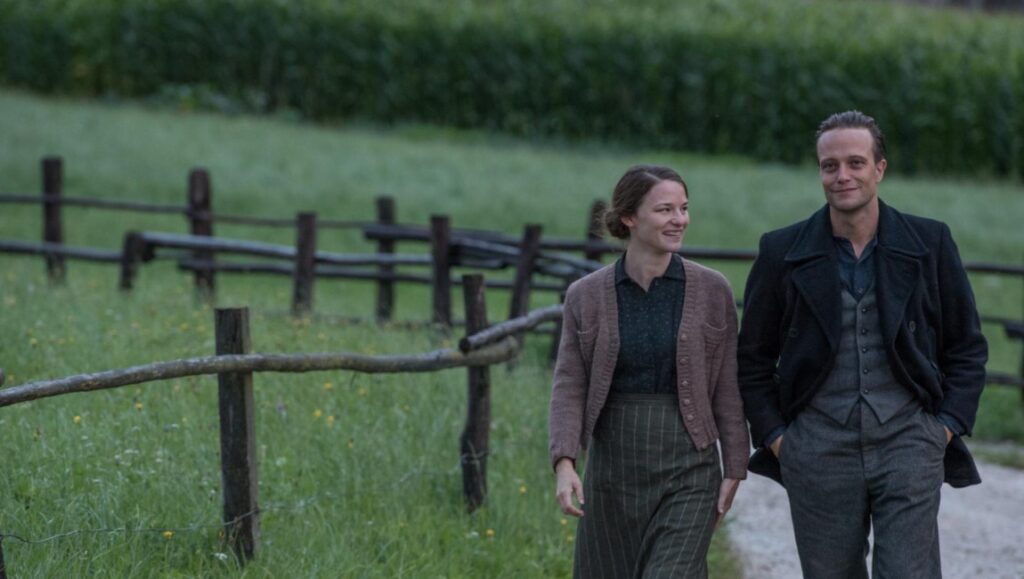From its title alone, Terrence Malick’s A Hidden Life concerns itself with subjects that cinema often struggles to depict: the twin blossomings of consciousness and conscience. In telling the story of Franz Jägerstätter (August Diehl), an Austrian farmer and conscientious objector during the time of the Third Reich, the notoriously reticent American director has returned to the histories of his pre-Tree of Life period, even opening with archival footage of a Nazi rally. But this vision of breathtaking natural expanses and solid manmade enclosures remains every bit as formally radical as any of his films this decade. Time flows ever-forward, moving Franz from a life of contentment in the alpen heights of St. Radegund, to the prisons of Berlin-Tegel, where he awaits his final verdict. And yet, A Hidden Life — previously titled Radegund — remains, per its title, startlingly interior, unfolding as an essentially epistolary work, with nary a full, back-and-forth conversation over its 173 minutes.
The story of Franz’s romance with his wife Franziska (Valerie Pachner) plays out in a flurry of glances and charged edits, set to Pachner’s hushed voiceover; Franz’s eventual departure for the city, which is accompanied by black-and-white train footage, is set to narration about a recurring nightmare. No doubt some will say that refusing to externalize Franz’s unwavering decision renders the film beatific in the extreme — but can one really assume that his silence indicates an absence of doubt, or that Malick’s view is one of uncomplicated approbation? Indeed, what A Hidden Life ultimately evokes is belief as a state of constant affirmation — which perhaps remains beyond what even cinema can capture. Only when the images stop flowing do we fully ponder the unseen; only at this film’s end, through an epigraph as moving as one is liable to encounter anywhere, do we feel the overwhelming weight of a life lived with conviction.
Published as part of December 2019’s Before We Vanish.


Comments are closed.